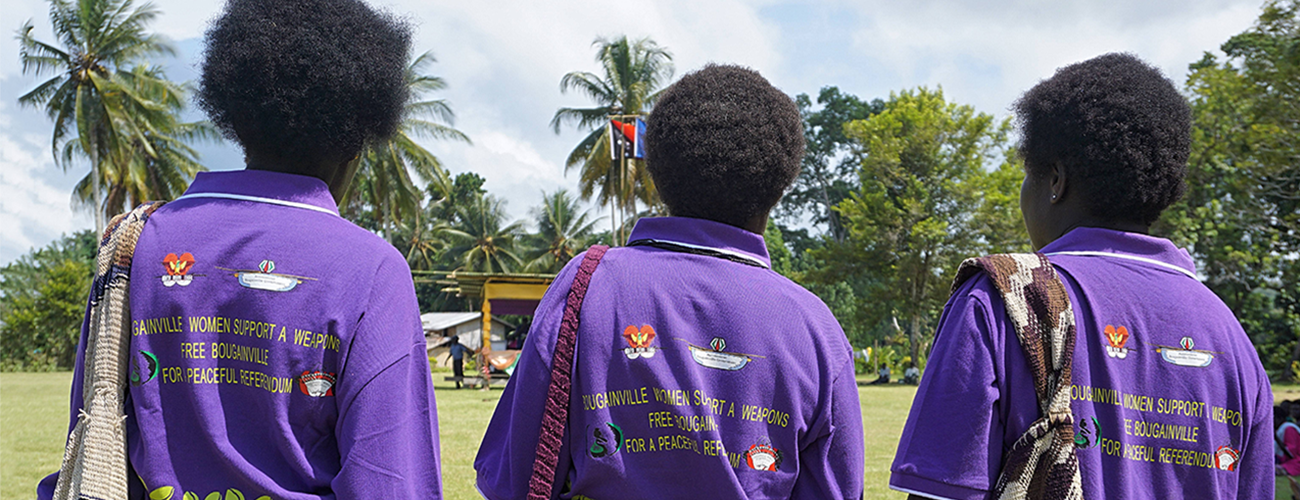Women in the village of Aero in central Bougainville come together for a unification ceremony, April 2018, Nick Turner/UNDP.
Papua New Guinea is facing two major challenges to peace: a November referendum on the future political status of Bougainville, the site of a brutal conflict from 1989 to 1998; and the recent increase in intercommunal violence in the Highlands region. This makes it an important test case for the UN’s approach to peacebuilding and sustaining peace and the recent reforms to the UN development system.
This paper, a publication of IPI and the Global Partnership for the Prevention of Armed Conflict (GPPAC), examines the implementation of the UN’s peacebuilding and sustaining peace framework in Papua New Guinea, looking at what has been done and what is still needed. It focuses on the four issue areas highlighted in the secretary-general’s 2018 report on peacebuilding and sustaining peace: operational and policy coherence; leadership at the UN country level; partnerships with local and regional actors; and international support.
Despite ongoing challenges in Papua New Guinea, implementation of the secretary-general’s recommendations on sustaining peace is already underway, offering examples of how to use the UN’s tools and resources to reduce and prevent violence and sustain peace. It reveals the importance of getting a resident coordinator with the right skill set; taking a long-term, preventive approach; building the capacity of government and civil society; ensuring continuous and flexible funding; and working with the Peacebuilding Commission to bring political attention in New York.








